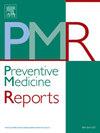Did the Medicaid expansion improve immunization among U.S. pregnant women?
IF 2.4
3区 医学
Q2 PUBLIC, ENVIRONMENTAL & OCCUPATIONAL HEALTH
引用次数: 0
Abstract
Objectives
Affordable Care Act (ACA) Medicaid expansion increased financial eligibility of low-income individuals. Its effects are mixed on influenza vaccination and unknown for Tetanus, Diphtheria, and Acellular Pertussis (Tdap) vaccination among pregnant women in the United States. We aim to address mixed and missing evidence in literature.
Methods
We merged 44,320 pregnant women from 2011 to 15 Pregnancy Risk Assessment Monitoring System with National Welfare Data by residency. Treatment group included Medicaid enrollees in post-ACA expansion states. Control included non-Medicaid enrollees in expansion states and all individuals in non-expansion states. We employed triple-difference method to estimate Medicaid expansion treatment effects on individual vaccination probabilities, and associations with socioeconomics and demographics.
Results
Treatment group did not differ from control to vaccinate due to Medicaid expansion. Additionally, post-ACA Medicaid enrollees were 4.5–9 % less likely to vaccinate than pre-ACA non-Medicaid enrollees. Medicaid enrollees in expansion states were 2.5 % less likely to vaccinate against influenza than non-Medicaid enrollees in non-expansion states. African Americans were 4–5 % less likely, while Native Americans were 3–7 % more likely, to vaccinate than counterparts. Those with low parity and college education were 3.2–5.4 % and 4.8–10.6 % more likely to vaccinate. Individuals in high-poverty states were 0.6 % less likely to receive the influenza vaccine.
Conclusions
We contributed different national data on understudied populations and the triple-difference method to the literature. Income-based Medicaid expansion did not increase the likelihood of vaccination among pregnant women. Non-income-based policies may target Medicaid-enrolled pregnant women in expansion states for influenza vaccination. Future interventions may target high-parity, low-education, and African American pregnant women in high-poverty non-expansion states.
医疗补助扩大是否改善了美国孕妇的免疫接种?
目的:平价医疗法案(ACA)医疗补助计划的扩大提高了低收入个人的财务资格。它对流感疫苗的影响好坏参半,对美国孕妇接种破伤风、白喉和无细胞百日咳(Tdap)疫苗的影响尚不清楚。我们的目标是解决文献中混杂和缺失的证据。方法对2011 - 2015年妊娠风险评估监测系统中按居住地分类的44320例孕妇进行合并。治疗组包括后aca扩张州的医疗补助参保者。对照组包括扩大州的非医疗补助参保者和未扩大州的所有个人。我们采用三差法来估计医疗补助扩大治疗对个体疫苗接种概率的影响,以及与社会经济学和人口统计学的关联。结果由于医疗补助计划的扩大,治疗组与对照组在接种疫苗方面没有差异。此外,aca后的医疗补助参保者比aca前的非医疗补助参保者接种疫苗的可能性低4.5 - 9%。扩张州的医疗补助参保者接种流感疫苗的可能性比未扩张州的非医疗补助参保者低2.5%。非裔美国人接种疫苗的可能性低4 - 5%,而美洲原住民接种疫苗的可能性高3 - 7%。低胎次和受过大学教育的人接种疫苗的可能性分别为3.2% - 5.4%和4.8% - 10.6%。高贫困州的个人接种流感疫苗的可能性要低0.6%。结论我们在文献中提供了不同国家未充分研究人群的数据和三差法。以收入为基础的医疗补助扩大并没有增加孕妇接种疫苗的可能性。非以收入为基础的政策可能针对扩大州的医疗补助登记孕妇进行流感疫苗接种。未来的干预措施可能针对高平等、低教育和非裔美国孕妇在高贫困非扩张国家。
本文章由计算机程序翻译,如有差异,请以英文原文为准。
求助全文
约1分钟内获得全文
求助全文
来源期刊

Preventive Medicine Reports
Medicine-Public Health, Environmental and Occupational Health
CiteScore
3.90
自引率
0.00%
发文量
353
 求助内容:
求助内容: 应助结果提醒方式:
应助结果提醒方式:


